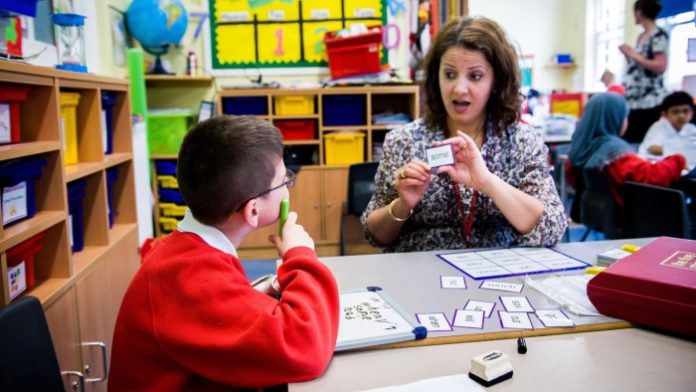Stay informed with free updates
Simply sign up to the Social affairs myFT Digest — delivered directly to your inbox.
Thousands fewer students could be entitled to the full package of special educational support in England under sweeping changes being considered by Sir Keir Starmer, as Labour seeks to improve the “neglected” system.
Senior government officials said ministers were looking at legislating to change the system by which children with special education needs (SEN) obtain support plans required to access a full suite of state assistance.
Education, health and support plans (EHCPs) were introduced in 2014 as part of the Children and Families Act, which set out the support that local authorities have a statutory obligation to provide to children with the highest needs.
EHCPs unlock extra help for those who are eligible, including one-on-one support, transport services and, in some cases, access to costly private education.
The proposals under consideration involve changes to the system that underpins the provision of support, which would be likely to affect children on the “lighter” end of the range of conditions such as ADHD and autism spectrum disorder, according to a senior official.
“It would mean thousands fewer pupils getting statements,” one official said.
The move would be just one prong of a wider suite of reforms being introduced to the SEN system by Starmer.
The government is seeking to significantly increase provision for special education support within mainstream schools, including £740mn announced this month for local authorities to create new SEN places.
It has also vowed to improve early intervention services offered to schools to prevent pupils’ conditions from worsening over time.
Starmer said this week that his “inheritance on SEN was a system neglected to the point of complete crisis”.
“We’ve got to reform, put in place a much earlier intervention system, and make sure this is predominantly mainstream,” he told parliament’s Liaison Committee on Thursday.
“If we don’t change the way special education is provided, we will never be able to plug the gap and fix the problem,” he added.
Experts say the SEN system is broken with demand for EHCPs ballooning and putting huge strain on stretched council budgets.
Meanwhile, they argue, very limited support is offered to people with SEN who do not obtain a statement, driving families and schools to seek EHCPs for some less severe conditions.
Local authorities have accumulated deficits in their high-needs budgets of around £3.3bn this year, according to the IFS, which warned this could rise to above £8bn in the next three years.
The Outcomes First Group, England’s largest provider of specialist education for children with SEN, released a report this week calling on the government to redesign the EHCP process with a tiered assessment model.
The proposed model would limit statements to the “more severe SEN cases requiring comprehensive and specialist intervention”, while offering simpler and more targeted interventions to people with less complex needs.
Luke Sibieta, research fellow at the Institute for Fiscal Studies think-tank, said that given the rising number of students with EHCPs, “it’s not a surprise if the government is starting to think about gradations”.
Sibieta added that a “missing part of the existing system” is state support for those whose needs do not qualify for a full EHCP entitlement.
The number of children and young people requiring special education needs support in England has more than doubled over the past decade, from 240,000 in January 2015 to 576,000 in January 2024, according to the National Audit Office.
Almost five per cent of all students now have a special needs plan, up from a steady rate of 2.9 per cent between 2000 and 2018, according to the IFS.
The rise in demand has outstripped funding, despite a real-terms increase in the government’s high-needs budget of more than 50 per cent over the past decade — from £6.8bn in 2015 to more than £10bn in 2024.
The government said there were “too many children not having their needs met and parents forced to fight for support”, adding it was determined to “restore the confidence of families” across the country.






